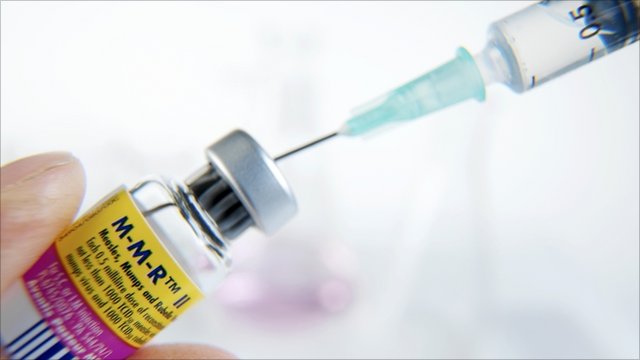
A measles outbreak linked to Disneyland in California is spreading further across the country and into Mexico as people who were infected on their vacations take the virus home to unvaccinated family members.
More than four dozen people in five states have been diagnosed with measles related to Disneyland or the adjacent Disney California Adventure Park in Orange County. California has reported the highest number of cases, with isolated clusters now reaching Washington, Utah, Oregon, Colorado, and Mexico.
The initial group of patients to develop measles had visited the parks from Dec. 15 to Dec. 20, according to California health officials, who say the outbreak has been traced back to a single unvaccinated California woman who became ill after visiting Disneyland. Most of those who have contracted measles were also unvaccinated, officials said.
The number of measles cases linked to Disney has more than doubled since last week, with at least 53 cases confirmed as of Tuesday. In Orange County, California, where at least 18 people have gotten sick, officials say six of the most recent patients were not at Disney and did not have known contact to any of the confirmed Disney visitors.
That worrisome development “indicates exposure to measles is more widespread throughout the county,” the Orange County Health Agency said in a statement. It went on to say officials expect “the measles outbreak will continue to spread.”
Measles is among the most contagious of all viruses and can spread through a sneeze or cough before a person even develops symptoms. The virus can remain airborne and live on surfaces for an extended period of time, making transmission easier to take place but harder to trace.
Symptoms of measles typically appear one to two weeks after exposure and may include fever, rash, cough, runny nose and/or red eyes. While most patients recover, some can develop serious complications or even die. According to the Centers for Disease Control and Prevention (CDC), about one out of every 20 children with measles will get pneumonia, and one or two out of 1,000 will die.
Before the vaccine became available in 1963, an average of 400 to 500 Americans died of measles every year and 4,000 suffered encephalitis from it. Federal efforts to expand immunization coverage were successful enough that measles was officially declared eradicated in the U.S. in 2000, meaning that it no longer spreads routinely like the common cold.
Measles has still been a problem when brought in by travelers from Western Europe and Southeast Asia, but transmission of the disease has always been halted by a ring of vaccinated people.
But health officials have long expressed fears that progress against measles was threatened by a growing anti-vaccination movement in the United States, based on parents’ fears that the measles vaccine causes autism — a theory that has been thoroughly discredited by numerous scientific studies. Health officials say the measles vaccine is very safe. Nevertheless, the movement has been linked to the record number of measles cases in 2014.
“The greatest threat to the U.S. vaccination program may now come from parents’ hesitancy to vaccinate their children. Although this so-called vaccine hesistancy has not become as widespread in the United States as it appears to have become in Europe, it is increasing,” Dr. Mark Grabowsky, a health official with the United Nations, wrote last year in the Journal of the American Medical Association-Pediatrics. “Many measles outbreaks can be traced to people refusing to be vaccinated; a recent large measles outbreak was attributable to a church advocating the refusal of measles vaccination.”
Nationwide, the measles vaccination rate is over 90 percent, but some communities — including Orange County and other parts of California — have seen an increase in parents refusing vaccination for their children. Orange County had its worst measles outbreak in decades last year, and many cases were linked to families who opted out of having their children vaccinated. Overall the U.S. had 644 confirmed cases of measles in 2014, the most in 20 years.
Health officials are urging people suspected of having the measles to first call their health provider before going to a clinic, enabling caregivers to make special preparations so patients don’t risk infecting others in the waiting room. An urgent care clinic in the San Diego suburb of La Mesa was forced to shut down on Wednesday when five people arrived with the telltale rash.
Officials said that the best prevention is inoculation. The CDC recommends children get a first measles shot at age 12 to 15 months, then a second shot at 4 to 6 years-old, before entering school. Two doses of measles vaccine are 99 percent effective at preventing the disease, according to the CDC.
